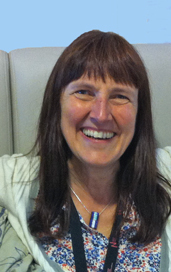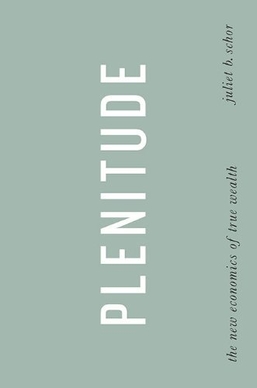
Gary Stanley Becker was an American economist who received the 1992 Nobel Memorial Prize in Economic Sciences. He was a professor of economics and sociology at the University of Chicago, and was a leader of the third generation of the Chicago school of economics.

Michael Albert is an American economist, speaker, writer, and political critic. Since the late 1970s, he has published books, articles, and other contributions on a wide array of subjects. He has also set up his own media outfits, magazines, and podcasts. He is known for helping to develop the socioeconomic theory of participatory economics.
In social behavior, downshifting is a trend where individuals adopt simpler lives from what critics call the "rat race".

The Theory of the Leisure Class: An Economic Study of Institutions (1899), by Thorstein Veblen, is a treatise of economics and sociology, and a critique of conspicuous consumption as a function of social class and of consumerism, which are social activities derived from the social stratification of people and the division of labor; the social institutions of the feudal period that have continued to the modern era.
South End Press was a non-profit book publisher run on a model of participatory economics. It was founded in 1977 by Michael Albert, Lydia Sargent, Juliet Schor, among others, in Boston's South End. It published books written by political activists, notably Arundhati Roy, Noam Chomsky, bell hooks, Winona LaDuke, Manning Marable, Ward Churchill, Cherríe Moraga, Andrea Smith, Howard Zinn, Jeremy Brecher and Scott Tucker. South End Press closed in 2014.
Viviana A. Rotman Zelizer is an Argentinian sociologist and the Lloyd Cotsen '50 Professor of Sociology at Princeton University. She is an economic sociologist who focuses on the attribution of cultural and moral meaning to the economy. A constant theme in her work is the economic valuation of the sacred, as found in such contexts as life insurance settlements and economic transactions between sexual intimates. In 2006, she was elected to the PEN American Center, and in 2007 she was elected to both the American Academy of Arts & Sciences and the American Philosophical Society.

Anti-consumerism is a sociopolitical ideology that is opposed to consumerism, the continual buying and consuming of material possessions. Anti-consumerism is concerned with the private actions of business corporations in pursuit of financial and economic goals at the expense of the public welfare, especially in matters of environmental protection, social stratification, and ethics in the governing of a society. In politics, anti-consumerism overlaps with environmental activism, anti-globalization, and animal-rights activism; moreover, a conceptual variation of anti-consumerism is post-consumerism, living in a material way that transcends consumerism.

Robert Costanza is an American/Australian ecological economist and Professor at the UCL Institute for Global Prosperity, University College London. He is a Fellow of the Academy of the Social Sciences in Australia and a Full Member of the Club of Rome.

Elinor Claire "Lin" Ostrom was an American political scientist and political economist whose work was associated with New Institutional Economics and the resurgence of political economy. In 2009, she was awarded the Nobel Memorial Prize in Economic Sciences for her "analysis of economic governance, especially the commons", which she shared with Oliver E. Williamson; she was the first woman to win the prize.
Degrowth is an academic and social movement critical of the concept of growth in gross domestic product as a measure of human and economic development. Degrowth theory is based on ideas and research from a multitude of disciplines such as economics, economic anthropology, ecological economics, environmental sciences, and development studies. It argues that the unitary focus of modern capitalism on growth, in terms of the monetary value of aggregate goods and services, causes widespread ecological damage and is not necessary for the further increase of human living standards. Degrowth theory has been met with both academic acclaim and considerable criticism.

The Diderot effect is a phenomenon that occurs when acquiring a new possession leads to a spiral of consumption that results in the acquisition of even more possessions. In other words, it means that buying something new can cause a chain reaction of buying more and more things, as the new item makes one feel like one needs other things to go with it or to keep up with it. This can lead to overspending and accumulating more possessions than one actually needs or uses. The term was coined by anthropologist and scholar of consumption patterns Grant McCracken in 1988, and is named after the French philosopher Denis Diderot (1713–1784), who first described the effect in an essay titled "Regrets for my Old Dressing Gown, or, A warning to those who have more taste than fortune".
Louise Audino Tilly was an American historian known for utilizing an interdisciplinary approach to her scholarly work, fusing sociology with historical research. Biographer Carl Strikwerda, states:

Tim Jackson is a British ecological economist and professor of sustainable development at the University of Surrey. He is the director of the Centre for the Understanding of Sustainable Prosperity (CUSP), a multi-disciplinary, international research consortium which aims to understand the economic, social and political dimensions of sustainable prosperity. Tim Jackson is the author of Prosperity Without Growth and Material Concerns (1996). In 2016, he received the Hillary Laureate for exceptional mid-career Leadership. His most recent book Post Growth—Life After Capitalism was published in March 2021 by Polity Press.

Margunn Bjørnholt is a Norwegian sociologist and economist. She is a research professor at the Norwegian Centre for Violence and Traumatic Stress Studies (NKVTS) and a professor of sociology at the University of Bergen. Her research has focused on financial institutions, management and working life and later on gender equality, migration and violence. She has also worked as a consultant, a civil servant, served as an expert to the European Commission and been president of the Norwegian Association for Women's Rights.
The sharing economy is a socio-economic system whereby consumers share in the creation, production, distribution, trade and consumption of goods, and services. These systems take a variety of forms, often leveraging information technology and the Internet, particularly digital platforms, to facilitate the distribution, sharing and reuse of excess capacity in goods and services.
Doris Fuchs is a German Political Scientist and Professor of International Relations and Sustainable Development at the University of Münster.
Neva Goodwin Rockefeller is an American businesswoman. She's served as co-director of the Global Development And Environment Institute (GDAE) at Tufts University since 1993, where she is a research associate at the Fletcher School of Law and Diplomacy and director of the Social Science Library: Frontier Thinking in Sustainable Development and Human Well-Being.
Kathleen Thelen is an American political scientist specializing in comparative politics. She is the Ford Professor of Political Science at the Massachusetts Institute of Technology (MIT), a permanent external member of the Max Planck Institute for the Study of Societies (MPIfG), and a faculty associate at the Center for European Studies (CES) at Harvard University.
The Overspent American: Upscaling, Downshifting, and the New Consumer is a 1998 book by Juliet Schor on American consumer spending patterns.

True Wealth: How and Why Millions of Americans are Creating a Time-Rich, Ecologically Light, Small-Scale, High-Satisfaction Economy is a 2010 book by Juliet Schor that argues for a redefinition of wealth based on allocation of free time, making things for oneself, environmentally-aware consumption, and stronger social connections.










